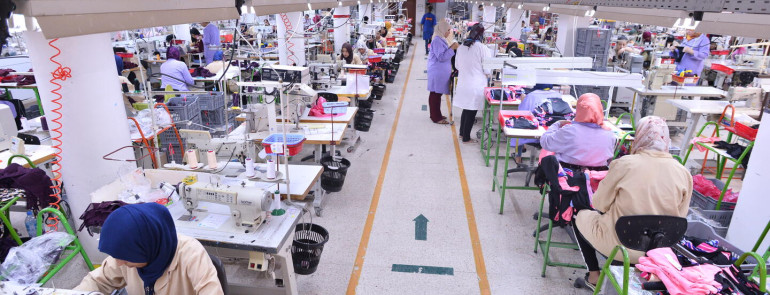A recent workshop in Casablanca, Morocco, brought together stakeholders from across Africa to explore the growing importance of the textile circular economy and upcoming legislative reforms. The event, organised by the International Trade Centre (ITC) under its GTEX/MENATEX programme, brought together experts, academics, and others in the industry to deliberate on crucial sustainability and circularity issues.
The workshop highlighted the need for innovative solutions to address the mounting challenge of textile waste. Traditional, linear production models contribute heavily to environmental pollution. The circular economy offers a promising alternative, emphasizing strategies like product design for disassembly, repair and reuse programs, and efficient recycling technologies.

Representatives from various African countries, including Egypt, Jordan, Morocco, and Tunisia, participated in the workshop. The event provided a platform for knowledge sharing and collaboration amongst industry professionals, policymakers, and researchers.
A key focus of the workshop was on legislative reforms shaping the textile sector in Africa. Experts discussed upcoming regulations and their potential impact on businesses across the continent. This knowledge empowers companies to adapt their practices and ensure compliance with evolving environmental standards.
The workshop also explored advancements in textile recycling technologies. Participants learned about innovative methods for transforming used garments and textile waste into valuable resources. These advancements have the potential to revolutionize waste management within the African textile industry and create a more closed-loop system.
The textile circular economy presents a multitude of benefits for African nations. By embracing circularity principles, businesses can minimize their environmental footprint, reduce reliance on virgin resources, and create new job opportunities. Additionally, a thriving circular economy can empower African countries to become more self-sufficient in the textile sector.

The momentum towards a circular textile economy is undeniable. As consumers increasingly demand sustainable options, businesses operating in the MENA region are well-positioned to take advantage of this growing trend. ‘Circular economy means also regionally logistically small circles close to the consumer. MENA (Middle East and North Africa) region would be well positioned to develop existing and additional business, especially considering Europe’s significant market presence with new legislation,’ Tobias Meier from Sustainable Textiles Switzerland 2030 said.
Other key speakers included Matthias Knappe, Head of ITC’s Fibres, Textiles, and Clothing Unit, Rudrajeet Pal from the University of Boras/Swedish School of Textile and Daniela Zimmermann from the Lucerne University of Applied Sciences.
The ITC workshop served as a significant step towards a more sustainable future for the African textile industry. By fostering collaboration amongst stakeholders and promoting the adoption of circular practices, the event paves the way for a more responsible and eco-friendly approach to textile production across the continent.

